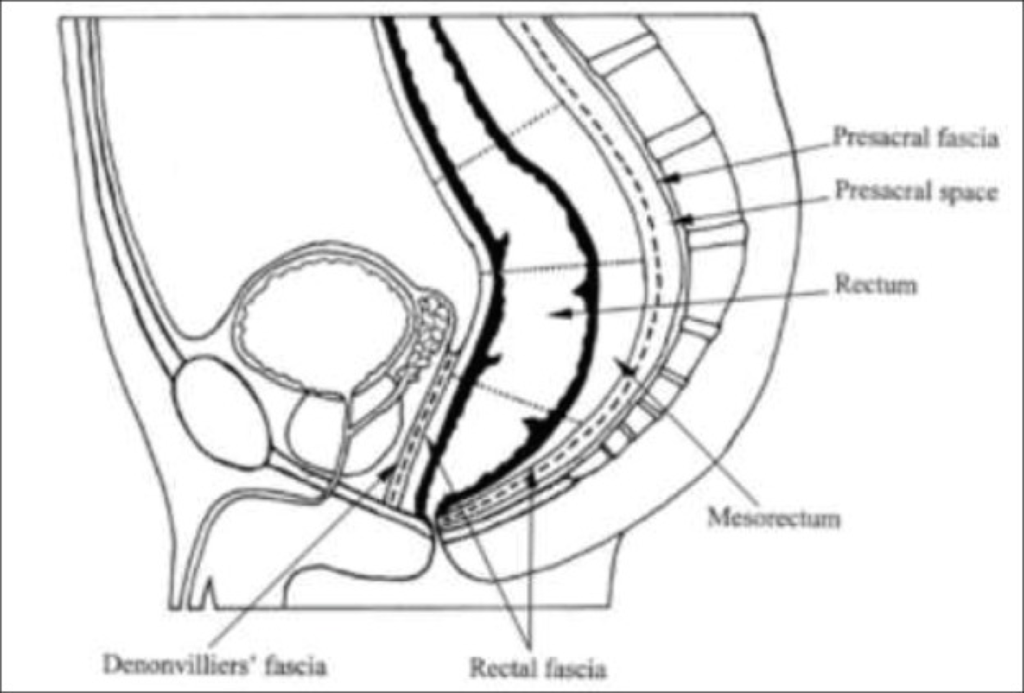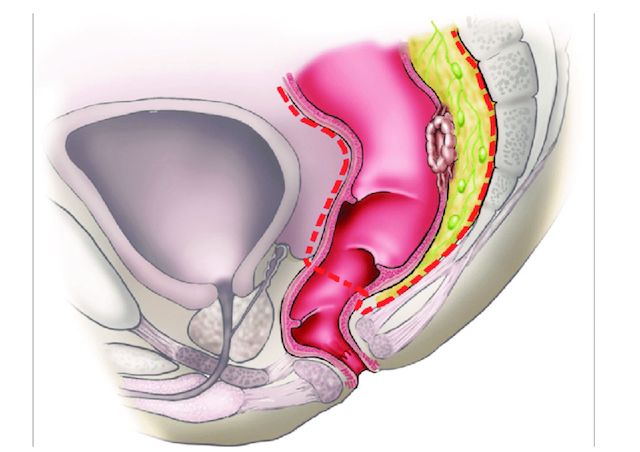Rectal cancers contribute to the majority of large bowel cancers. Colorectal cancers are the second leading cause of cancer mortality in the western world. Patients presenting with operable rectal cancers will end up having rectal surgery either laparoscopically or open. Whatever the surgical approach, according to the current evidence, rectal cancer surgery without total mesorectal excision is considered substandard.
Total mesorectal excision involves complete removal of mesorectal fascia up to the levator ani muscles. It is recommended for middle and lower third rectal cancers. Mesorectal principles are also applied to the upper rectal tumors and abdominoperineal resections but are not involved in the original description. However, total mesorectal excision is not beneficial for patients undergoing abdominoperineal resections for tumors below levator ani.
Total mesorectal excision –current evidence
The circumferential resection margin (CME) involvement is 5% or less for anterior resections with total mesorectal excision.TME reduces local recurrence up to 6 to 12 % and improves 5-year survival by 57-87%.
Who described total mesorectal excision?
The TME technique was developed by Professor Bill Heald at Basingstoke Hospital. During the last two decades, the technique spread across the world and is now adopted by almost every surgeon performing rectal cancer surgery.
What is mesorectum
Mesorectum is the fatty tissue surrounding the extraperitoneal rectum, which contains the lymph nodes and blood vessels

Downsides of total mesorectal excision
Even though TME has well-proven benefits, it has some downsides as well. These patients have a higher chance of anastomotic leakage and more likely to get a defunctioning ileostomy. They will have more incidence of urgency and incontinence but usually recovers with time.
Mesorectal transection or partial mesorectal excision
For tumors of the upper rectum, Anterior resection is completed with the division of the rectum and mesorectum 5 cm below the tumor. Since this is above the levator ani, it is referred to as partial mesorectal excision or mesorectal transection.
Related topics

